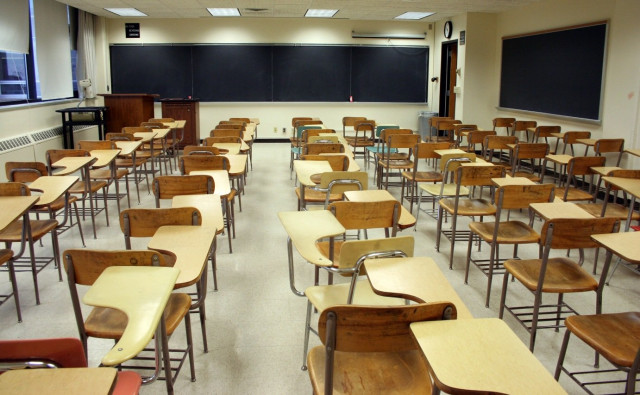The literacy factor: 30m Pakistanis aged 4 to 16 deprived of education
Article 25A of 18th Amendment remains unimplemented by provinces.

The literacy factor: 30m Pakistanis aged 4 to 16 deprived of education
Like other countries around the world, the International Literacy Day was observed on September 8 by Pakistan, despite the fact over 30 million of children aged 4 to 16 are not enrolled in schools. Literacy and the ability to read and write enables people to access new sources of information, express their own thoughts and understand another person’s point of view.
Since 1966, United Nations Educational, Scientific and Cultural Organisation (Unesco) has supported and played a lead role to observe the International Literacy Day, with a view to reminding the international community that literacy is a basic human right and the foundation of all learning. The theme of this year’s International Literacy Day – ‘Literacy and Peace’ – however, seems to be irrelevant in the context of Pakistan which allocates a paltry percentage of its budget on education.
Presently, the overall literacy rate in Pakistan is 58%. Male literacy stands at 69%, while the literacy rate among females is 45%. Around 7 million children aged 5 to 9 are not enrolled in schools, whereas more than 30 million children aged 4 to 16 have no access to education.
Though Article 25A of the 18th Amendment in the Constitution ensures free and compulsory education to children up to age 16, not a single province has taken any steps to implement the clause to provide education to its people.
“The provinces have not legislated the article, nor have their raised their budget allocation to education to implement it, even after over two years have passed since the amendment was made,” said Arshad Saeed Khan, Education Advisor to Unesco. “There is no change as far as the improvements in terms of the quality and quantity of education is concerned for the last two years,” Khan said.
Without the government increasing the funding for education, international support will not bring any significant change to improve the standards of education in Pakistan, he said.
“There is a crucial need of legislation by the provinces to implement Article 25A and raise the education budget to a significant level to ensure free and compulsory education to each child,” he added.
Zafarullah Khan, Executive Director of the Centre for Civic Education said that education was vital for socio-economic development and Pakistan could only face up to its challenges if it concentrated on education.
“Due to the absence of any guarantee from the state, we are not sure whether each child born today will be able to go to school after five years,” Zafarullah said.
“Under the Constitution, it is the state’s obligation to provide free and compulsory education to children. Provinces must take immediate steps to legislate the clause to provide free and compulsory education to over 30 million children who are deprived of this fundamental right,” he said.
Zafarullah added that poverty was the key factor of the high rate of dropout of children from schools, which, he said, also needed to be addressed.
Published in The Express Tribune, September 9th, 2012.



















COMMENTS
Comments are moderated and generally will be posted if they are on-topic and not abusive.
For more information, please see our Comments FAQ